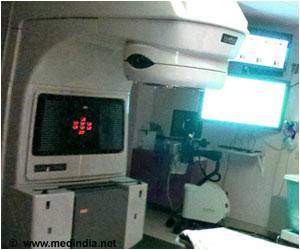
‘It is well-known that high-energy radiation can damage the DNA, causing cancer. Researchers have identified two mutational signatures that explain how high-energy radiation damages DNA.’
Tweet it Now
Previous studies have shown that DNA damage leaves a molecular fingerprint, known as a mutational signature on the genome of a cancer cell. In 12 patients with secondary radiation-associated tumors, the researchers looked for mutational signatures and compared with 319 that had not been exposed to radiation. Dr Peter Campbell from the Wellcome Trust Sanger Institute who led the study, said, "To find out how radiation could cause cancer, we studied the genomes of cancers caused by radiation in comparison to tumors that arose spontaneously. By comparing the DNA sequences we found two mutational signatures for radiation damage that were independent of cancer type. We then checked the findings with prostate cancers that had or had not been exposed to radiation, and found the same two signatures again. These mutational signatures help us explain how high-energy radiation damages DNA."
The first mutational signature is a deletion where small numbers of DNA bases are cut out. The second is a balanced inversion, where the DNA is cut into two places, the middle piece spins round and joins back in the opposite orientation. The balanced inversion does not occur on its own; high-energy radiation could provide enough DNA breaks at the same time to make this possible.
Dr Sam Behjati, a clinician researcher at the Sanger Institute and the Department of Pediatrics, University of Cambridge, said, "Ionizing radiation probably causes all types of mutational damage, but here we can see two specific types of damage and get a sense of what is happening to the DNA. Showers of radiation chop up the genome causing lots of damage simultaneously. This seems to overwhelm the DNA repair mechanism in the cell, leading to the DNA damage we see."
Professor Adrienne Flanagan, a collaborating cancer researcher from University College London and Royal National Orthopaedic Hospital, said, "This is the first time that scientists have been able to define the damage caused to DNA by ionizing radiation. These mutational signatures could be a diagnosis tool for both individual cases, and for groups of cancers, and could help us find out which cancers are caused by radiation. Once we have a better understanding of this, we can study whether they should be treated the same or differently to other cancers."
Advertisement
Source-Medindia















